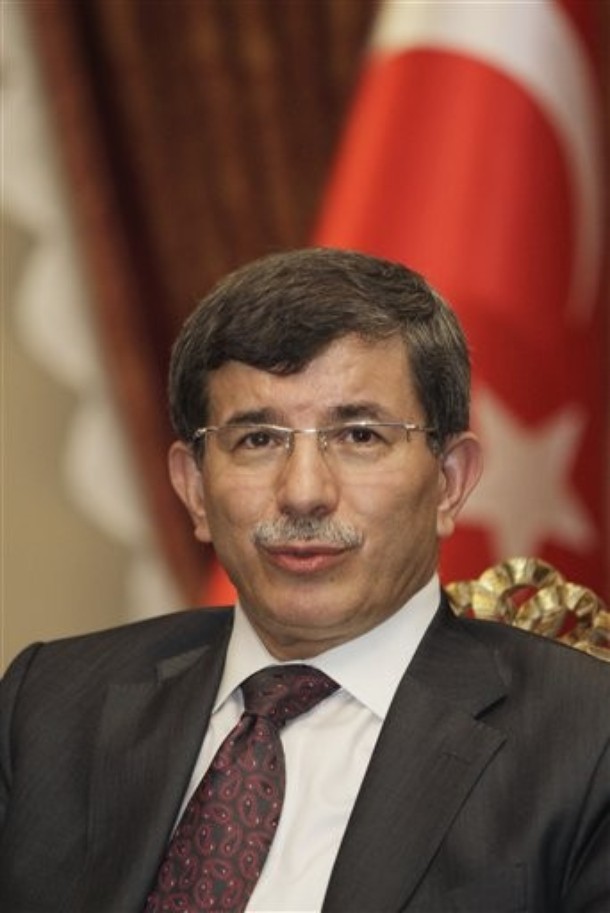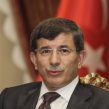
Ankara’s Reaction to Xinjiang Crisis Raises Bilateral Tension
Publication: Eurasia Daily Monitor Volume: 6 Issue: 135
By:

Since the ethnic riots in Urumqi, the capital of China’s northwestern Xinjiang region populated by ethnic Turkic Uighurs, which resulted in the deaths of at least 156 people, including many Uighurs, Sino-Turkish relations have entered a low-level crisis. In the aftermath of the riots, the Turkish foreign ministry issued a statement emphasizing Ankara’s concerns. However, due to the media coverage and public anger toward China’s harsh reaction toward its ethnic Turkic speaking Uighur minorities, Prime Minister Recep Tayyip Erdogan has not followed the muted tone of the foreign ministry, and asked the Foreign Minister Ahmet Davutoglu to monitor the developments closely and keep him informed (EDM, July 8).
Erdogan further escalated his rhetoric and stated that he intended to raise the issue of China’s reaction to Uighur Turks during the G-8 summit, and within the U.N. Security Council, where Turkey is a non-permanent member (Cihan Haber Ajansi, July 7). During a press conference on July 10 Erdogan described China’s reaction against the Uighurs as "nearly genocide" (adeta soykirim). In response, Chinese foreign ministry spokesman Qin Gang said the accusation of genocide simply did not make sense. Most people who died in the riots were Han Chinese, and over the past few decades the Uighur population in Xinjiang had increased (Today’s Zaman, July 16).
The semi-official China Daily ran an editorial with the title: "Do not twist facts," and alleged that Erdogan’s remarks, "constitute interference in China’s internal affairs" (China Daily, July 14). The editorial stressed that "Erdogan’s description of the riots in Xinjiang as ‘a kind of genocide’ is an irresponsible and groundless accusation" and advised Erdogan "to take back his remarks" (China Daily, July 14).
Another harsh criticism was published in an editorial in China’s Global Times. Mo Lingjiao said that the Turkish government always showed great interest in China’s internal affairs in Xinjiang, and is prepared to meddle. The government even allowed its local Uighur separatists to protest against China. All this had prompted Ankara to adopt an anti-Chinese stance:
"…Turkey stands by the side of the thugs, revealing its shame to the whole world and repaying China with evil. Turkey’s support for the Uighur separatists and terrorists can only cause public indignation in China. If it does not want to ruin the relationship between the two peoples, please stop standing behind those mobs and separatists, stop being an axis of evil!" (www.globaltimes.cn, July 10).
Turkish Foreign Minister Ahmet Davutoglu telephoned his Chinese counterpart Yang Jiechi to convey Ankara’s sensitivity and expectations concerning the incidents and said that the public reaction was sparked by images from the region (Anadolu Ajansi, July 14). Jiechi claimed that the Urumqi riots were a grave crime orchestrated by the "three evil forces," Xinhua news agency said, referring to extremism, separatism and terrorism (Today’s Zaman, July 16).
In addition to the "genocide" crisis, Rabia Kader, the head of the World Uighur Congress, who lives in Washington, applied for a Turkish visa, which has also contributed negatively to the tense atmosphere in the bilateral relationship. Beijing alleges that Kader is the main figure behind the ethic riots in Xinjiang region -which she has denied.
During the riots, the Turkish press noted that due to Chinese pressure on the Turkish embassy in Washington, Kader was previously refused visa applications in 2006-07. However, during a recent press conference, Erdogan stated that he was not aware of Kader’s visa application. If she reapplies for a Turkish visa, Ankara is likely to issue one (Yeni Safak, July 9).
The Chinese Counselor in Ankara, Xiao Junzheng said that as the leader of the World Uighur Congress, Kader is considered by the Chinese government to be an individual who supports ethnic separatism in China. Junzheng added that the Chinese government is watching her visa issue with deep concern, and that Beijing is determined to oppose Kader’s entrance to Turkey. Her visit to Turkey might further damage the tense bilateral relationship (Milliyet, July 10).
Despite the fact that the Turkish business community is eager to invest in China, and some major companies have already invested, they remain silent because nationalist rhetoric has hijacked any reasonable public discussion. The Vice-Chairman of the Turkey-China Business Council, Yavuz Onay criticized the protests against China and accused Uighurs of being terrorists. However, his remarks elicited a surprising response from the leader of the Nationalist Action Party, Devlet Bahceli, who labeled him as a traitor (Anadolu Ajansi, July 10).
In the last few days the level of Turkish public anger toward China has somewhat dissipated. However, the long silenced Uighur community and their lobbyists have gained momentum to revitalize their activities in Turkey. In the event of Kader visiting Turkey it is likely that Uighur activities in the country will escalate, risking further damage to the already fragile Sino-Turkish relationship.




